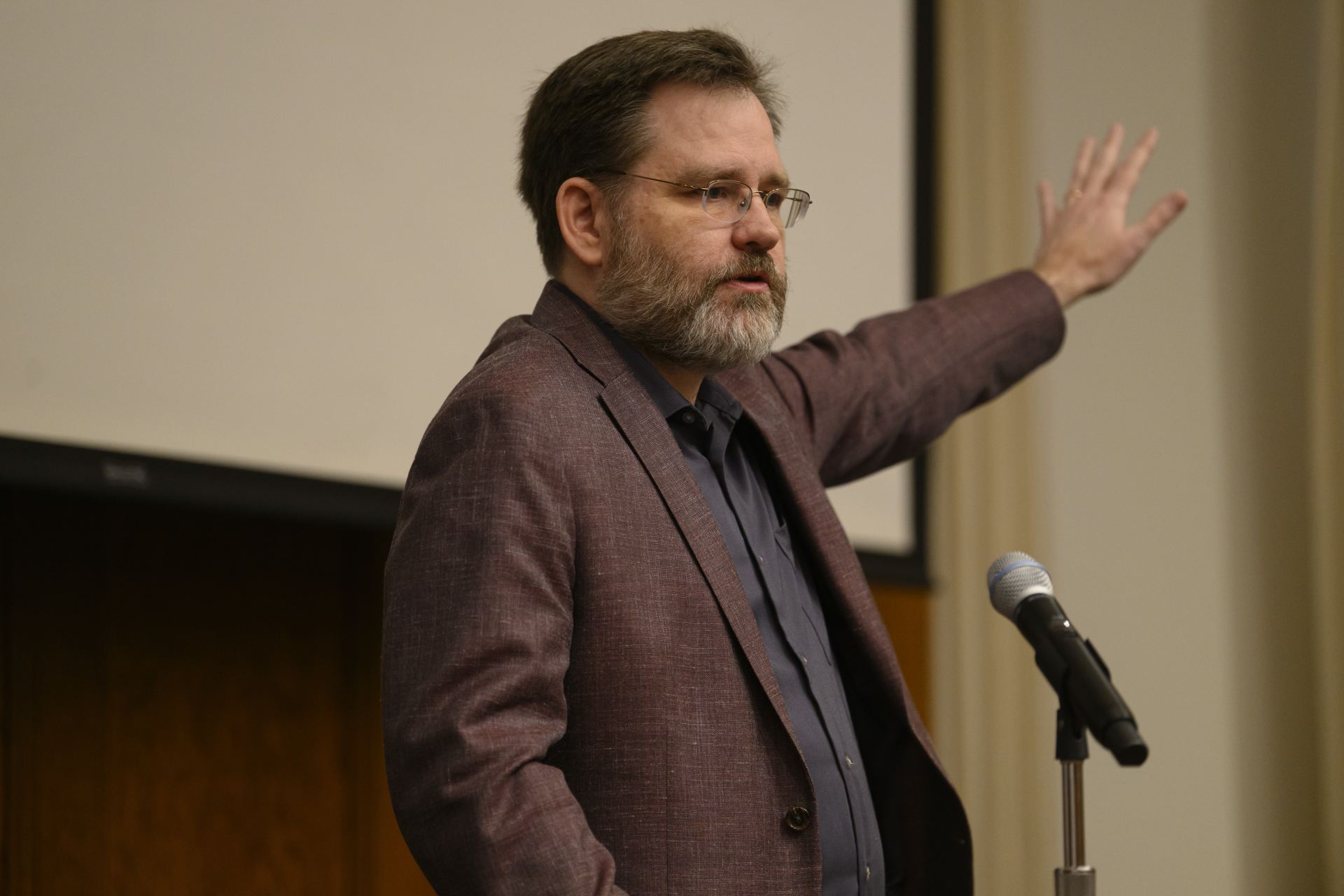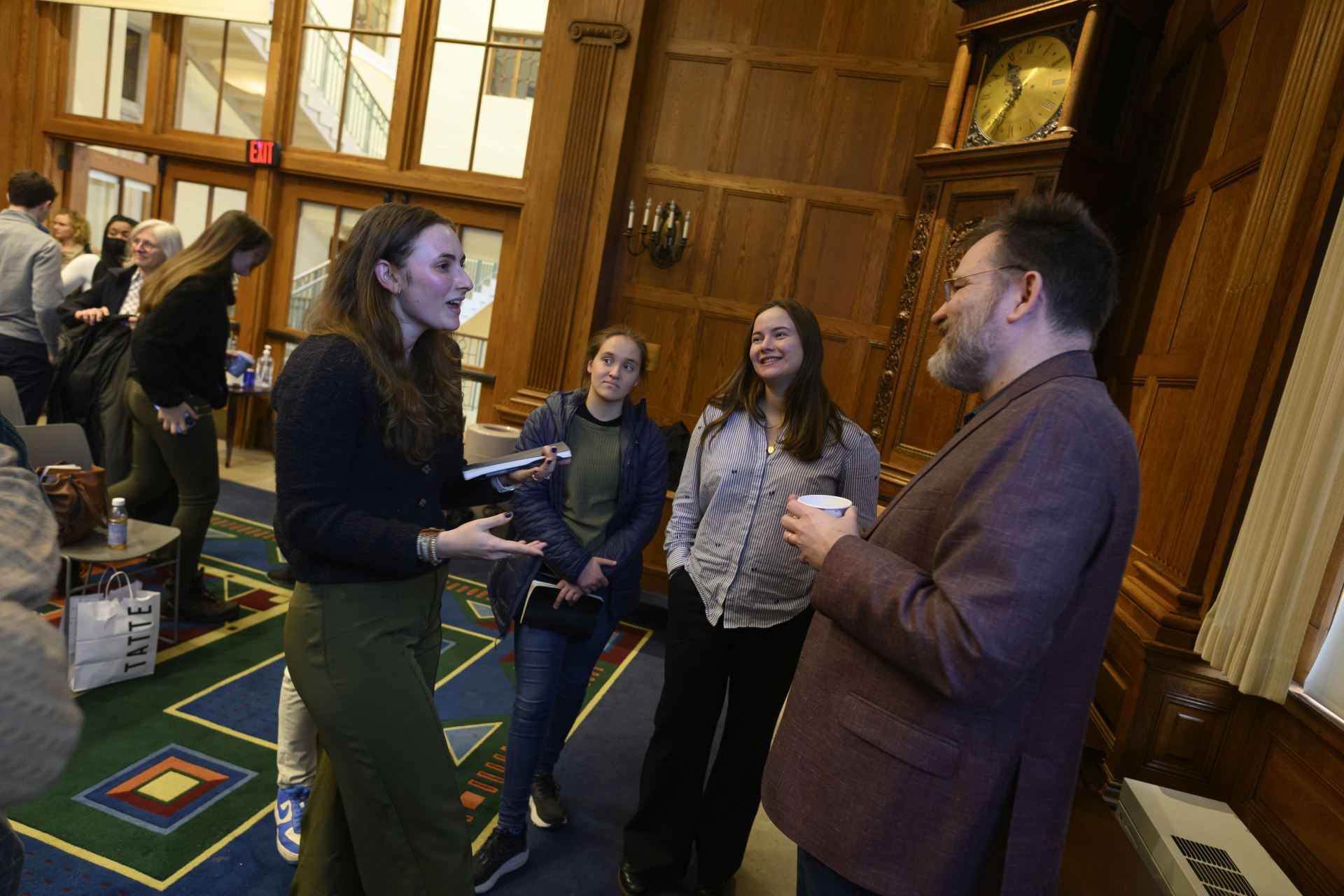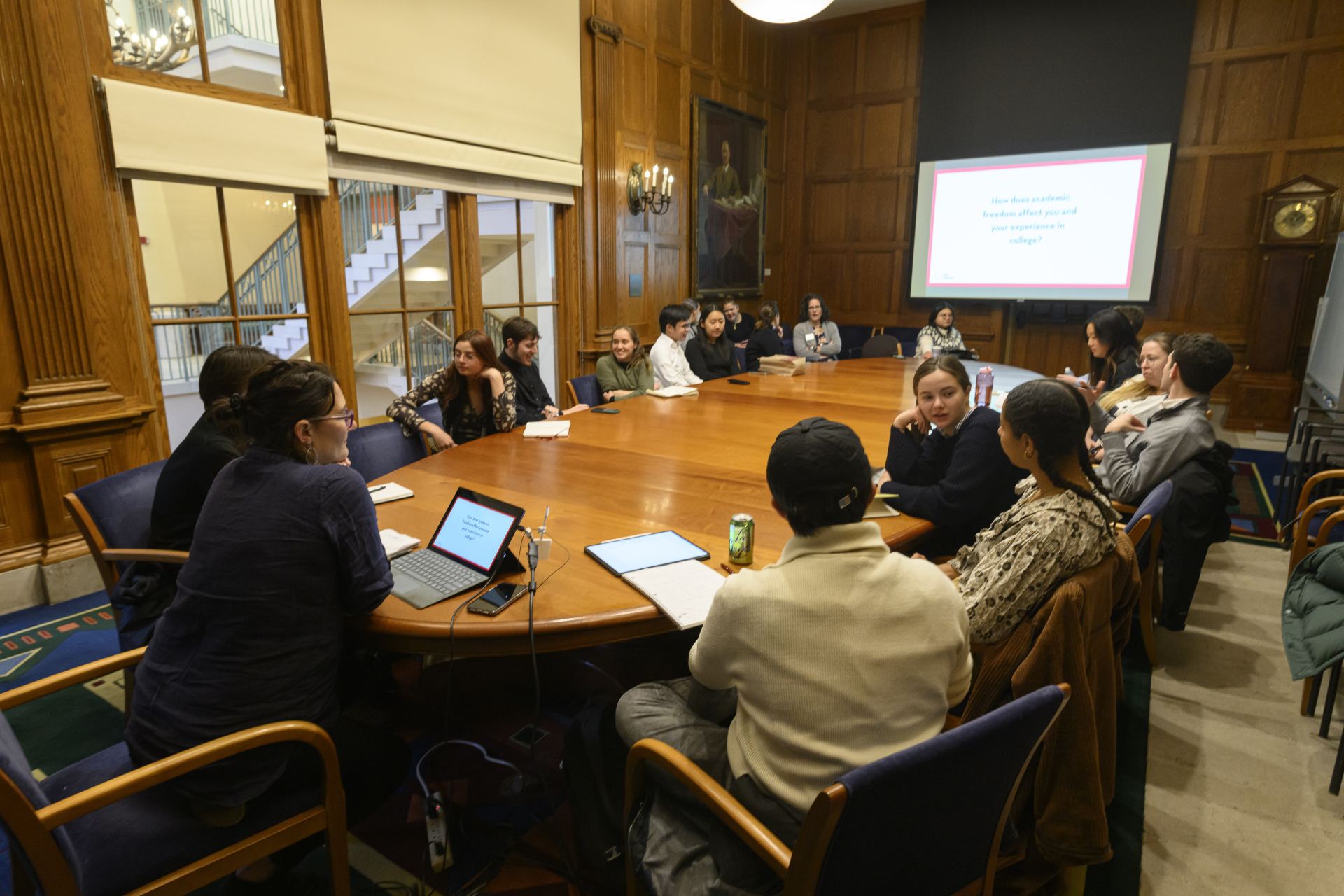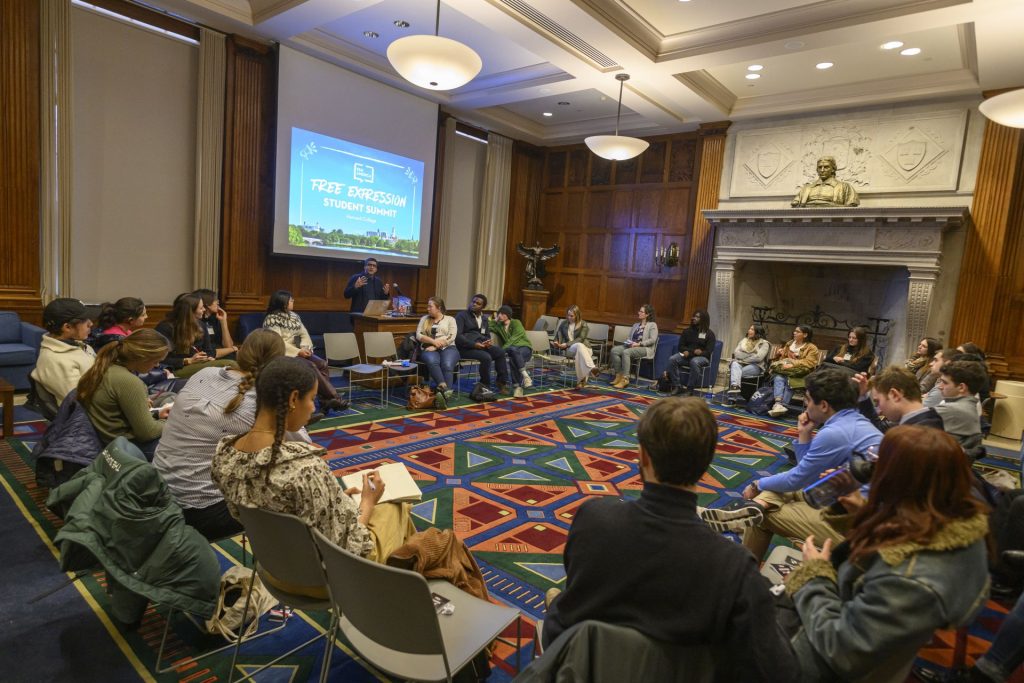
Harvard College and PEN America Intellectual Vitality and Free Expression Student Summit
Background Video of South asian countries and their people
On January 18-19, 2024, Harvard College and PEN America convened a group of student leaders from Harvard College and other Boston area, Ivy, and Ivy+ schools for our first-ever Intellectual Vitality and Free Expression Student Summit. As part of a commitment to open discourse on and off campus, the event aimed to foster discussions and respectful dialogue, providing participants to engage and feel more well-versed in:
- Literacy on free expression issues through exposure to various related topics
- Advocate for your rights and the rights of others
- Civil discourse and respectful engagement across varying perspectives and backgrounds
The day-and-a-half-long program featured a keynote panel and workshop series covering various free-expression topics across PEN America’s field of work. Additionally, an advocacy simulation activity allowed students to design campaigns centered on issues they cared about.
PEN America Keynote Panel: Combatting Censorship, Disinformation, and Hate
The Summit began with a public keynote panel featuring Suzanne Nossel (A.B. ’91, J.D. ’96), CEO of PEN America; Randall Kennedy, the Michael R. Klein Professor at Harvard Law School; and John Boyer, Senior Advisor to the President and the Martin A. Ryerson Distinguished Service Professor at the University of Chicago. The conversation, moderated by Rakesh Khurana, the Danoff Dean of Harvard College, and with opening remarks from Amanda Claybaugh, the Dean of Undergraduate Education at Harvard College, opened discussions of combating censorship, hate, and the spread of disinformation before taking insightful questions from students.





Keynote Speaker and Q&A
The summit’s second day kicked off with a keynote by Keith E. Whittington, the William Nelson Cromwell Professor of Politics at Princeton, on the evolution of academic freedom and the challenges students face to protect free speech on campuses throughout American history.





Workshops
Several workshops were held for students to foster discussion and acquire training in the theories, laws, and practical challenges faced in different areas of free speech and expression. Following the workshops, students convened together for an advocacy campaign simulation activity, where they chose an issue they cared about, conceptualized a theory of change, and designed an event, program, or initiative to address the issue.
Large Group Workshop: Conceptual Foundations of Free Speech Advocacy

For a century, PEN America has uniquely championed free expression advocacy, defending the exchange of ideas and opposing disinformation and hate. In the U.S., the First Amendment secures this right, reinforced by strong Supreme Court precedents. Internationally, the right is upheld by the Universal Declaration of Human Rights and the International Covenant on Civil and Political Rights. In this session, students explored how these legal foundations shape PEN America’s guiding philosophy, discussing the foundational documents, thinkers, and ideas that fuel commitment to freedom of expression.
Academic Freedom and Free Speech on Campus

Free speech has become a flashpoint for controversy on campuses across the U.S. In today’s debate over free speech on campus. During the workshop, participants engaged in dialogue about the guiding principles for campus free speech and academic freedom. The focus extended to analyzing solutions for campuses to effectively defend free speech and open inquiry while simultaneously advancing principles of diversity, equity, and inclusion.
The Ethics of Storytelling: Rethinking Cancel Culture, Appropriation, and Accountability

PEN America invited students to think about the ethical and moral implications of storytelling and where to draw the lines around creative expression, appropriation, and authenticity. Discussions focused on non-censorious approaches to stories that we find inaccurate or distasteful and explored innovative methods of counterspeech as ways to spread awareness and push for social accountability.
Counter-Speech: Protest Rights and the Freedom of Assembly

Counter-speech is a key component of free speech: the ability to speak out and use voice to counter or respond to speech one finds disfavorable. While respect for Constitutional rights should, in theory, be nonpartisan, protest has long been and remains a fiercely political issue, particularly as a form of expression often wielded against those currently holding political power. The workshop invited participants to engage in discussions about the vital role of advocating for those who face censorship in a democracy, and ways it could be done, and dived into the concept of allyship in the face of hate and harassment.
Closing Session
The final session of the day began with closing remarks from Dannof Dean of the College, Rakesh Khurana, and later, provided space for participants to reflect on the Summit workshops, panels, speakers, and individual conversations. This workshop allowed participants to think about how they might take what they learned throughout the day and a half and apply it to their own personal and academic lives while also hearing how others would do the same.




